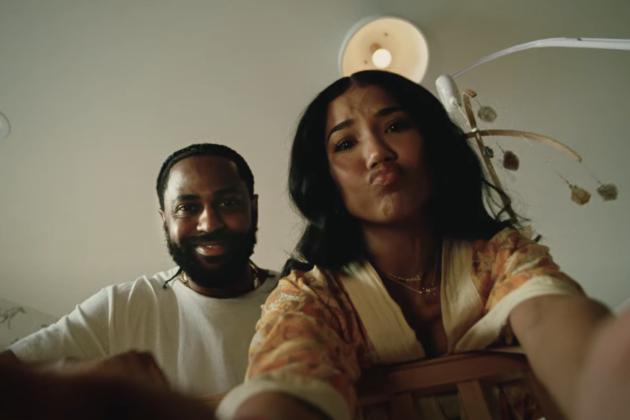It is not what you go through that defines you, but rather, the actions and reactions you take to respond to your circumstances, and how you use the lessons you’ve learned to propel you forward.
Baltimore native, Wendell Shannon, lived in the fast lane for most of his younger years until an arrest and a subsequent lengthy jail sentence made him re-evaluate, redirect, and refocus his intentions toward the road of redemption.
Shannon’s previous street life, although destructive, still left him with the ability to heal and turn his life around. And because he listened and answered the call, he now is the owner of a publishing company, an author, and a great inspiration to others. Here is my conversation with Wendell Shannon.
Tell everyone a little about yourself growing up.
I was curious and wasn’t known to talk much. With a mental notepad capturing moments, I saw everything. It is said, “You become what you see and half of what you hear.” That happened to me. I grew up in a household with my mother and father. My father failed at investing in me—his youngest son. Growing up with my father being silent allowed the streets to give instructions. To my amazement, the streets had their voice reinforcing what I saw. Those street corners spoke very clearly and captured my undivided attention at a young age.
It wasn’t easy; we had to fight white students because they didn’t want us in their schools. Neighborhoods were dangerous, but that did not take the focus off education. I fully complied with learning and going to school while something else had my attention. I fell in awe of the streets. Growing up back then, gangsters ruled the streets, and codes were enforced that all abided by, or else. That was power. All ages and genders are attracted to power.
My short-term interest was education. My long-term interest and secret were to become like those I saw on the streets, but school was always my priority. Statistics projected my failure rate to favor me dropping out of school; however, nothing was more significant than making my mother proud; I was a momma’s boy.
I was in the streets during junior high school but determined to become educated in school and on the streets, I made it through school—PROUDLY!
You spent 13 years in prison. What were the experiences that led to that, and what lessons did you learn from being incarcerated that made you the man you are now?
I was hustling in the streets of Baltimore secretly from the age of 14, selling weed, and eventually prescription drugs and heroin at 16-years-old. I had minor run-ins with the law then, but nothing compared to the incident that sent me to prison.
I had two daughters and two sons who needed their father, but their father didn’t realize the need himself. It was evident that the chances I took could’ve ended my life.
Drugs and guns threatened many lives during the early 90s when I was heavily involved in the New York to Baltimore drug trade. Like other cities around the country, Baltimore had become a dangerous place.
I was involved in a drug transaction with several others that year. It became a violent shootout that took the life of one of those involved. The felony murder doctrine is clear in Baltimore City Circuit Court. I was involved in the drug transaction preceding the murder, and therefore, guilty. It didn’t matter that I didn’t pull a trigger under Maryland law. The doctrine states that I was just as guilty for being a part of a drug deal gone bad before the shootout as the murder itself. I pled guilty and received twenty-five years.
I began to understand how vital goals were and the sacrifice necessary to make those goals a reality. In prison, it is a reality that you live each day as your last. Introspection is your best weapon for change. I spoke to myself and couldn’t deny there is only one me. I created a business plan because people believed in me and even more depended on me. Life gave me a skill that I hadn’t fully developed. Now, I had the chance to do all that was within my ability to define the dash between the day I was born and the day I passed.
For anyone who has been incarcerated but turned their life around and is finding it hard to get a job or for people to believe in them, what words of wisdom can you share?
There is a clear path for everyone previously incarcerated to find their niche. Everyone has a gift. We all have something we are good at doing. The best business opportunities out there, especially after Covid and government funding, are the ones you can create. Starting your own business and following your dreams costs less than you think. Today’s thinking requires you to bet on yourself because you should be your most significant investment. Ultimately, you are worth the risk.
Today, you’re a writer, author, greeting card maker, and publisher. How did the idea for those things come about, and tell us about your company, Go Daddy Productions?
When your life is at its lowest point, the most critical choice you can make is facing your fears. I had taken many foolish chances leading to incarceration, but I never stepped out on my faith. I realized I failed at giving myself a real opportunity. My lifestyle and self-doubt had me afraid.
However, I understood more because I was silent when the voice inside was speaking. That served as another sign of reverence and self-respect. I had a lot to say and not many to say it to, so I started journaling without thinking about a memoir, writing articles without concerns of being judged, and sharing poetry as I did legal work.
The opportunity came when guys asked if I could use my poems to create cards for them because the available generic cards didn’t say enough, so they couldn’t express their love accurately. Also, Mother’s Day was coming, so, the opportunity came to create and sell greeting cards.
My children were my inspiration, and I was their daddy. So, I came up with Go Daddy Productions’ name with them behind me. My long-term hope was to create a family business and a legacy.
Today, Go Daddy Productions is a publishing company that markets greeting cards, Urban novels, and children’s books and has a learning channel on YouTube called T.Y.E. with Wendell Shannon. And, yes, my children and grandchildren are involved.
Next year, we celebrate twenty years of success.
What genre of books do you write? What have been your bestselling books to date?
I write Urban Fiction novels. I like to call my storytelling Reality Fiction. I enjoy writing in detail to place my readers in the room. I’m confident that my work is perfect for the big screen. For the Love of Fast Money has been the highlight of my writing career and a bestselling book. That success was followed by its sequel, titled Business As Usual. Amina’s Trouble is my latest release. That book created a buzz again in the industry because my skills had matured. That had me looking for movie opportunities. Many novels these days have become movies. Success stories like Carl Weber and Terri Woods keep me focused on making it to the big screen. In addition, I’ve had bestsellers in children’s books as well, including ABCs with T.Y.E. and Jibril and Jax the Caterpillar.
If you could give someone advice who wanted to write a book and have no knowledge of where to start, what would you tell them?
Everything starts with a plan. A writer’s first plan is simple to give your story life. “Stop telling people how good your story is.” Explore your ideas but get the story out of your mind and mouth. The best place to start is by putting your fingers on the keyboard. Outline your story. Develop your characters and their intentions and begin drafting potential highs and lows for your plot. Your book will have a life of its own.
Remember, try not to transfer a bad habit into a good project. We start things with good intentions of finishing, but we never do. In this instance, action toward completion speaks louder than any words. You began with words and will be back to talking instead of working toward your ending.
Every story has an important message, just like I believe every person’s life story is a book. The best active advice I can give is crucial once you start writing. So, I’m sharing what a pro shared with me. “Begin your story with the ending in mind.”
You have also produced and directed a 2-part documentary and a preacher series installment. Tell us about both of those projects.
Thank you to Streetwise Productions, Camero Mercer, Dennis Wise, and Joe Edison. They allowed me to showcase my creative talent in our first documentary chronicling the life of Dennis Wise.
Wise was a convicted killer from the ’60-’70s era. Writers fictionalized his character in the HBO series, The Wire.
Episode 1 exposes the dangers he created and ultimately faced growing up in the streets of Baltimore. Details of his violent journey on the streets, and early juvenile arrests to landing in adult prison at a young age, are covered.
Episode 2 highlights the activities of Wise’s criminal rise. Dennis was convicted of a crime he professed he did not commit and was sentenced to life in prison. However, Wise never said he wasn’t a part of that dangerous Baltimore lifestyle, nor did he ever discuss being a contract killer for a Chicago-based drug ring. Instead, he professed from the beginning of being charged his innocence of this crime and never gave up hope of one day regaining his freedom.
Experienced writers tell you to emulate whom you want to become in your writing craft. It suggests that you follow the style of a success that you can imitate. The Autobiography of Malcolm X by Alex Haley has been my favorite of all times, but Roots was what I’ve always wanted to create on my terms after research.
The Preacher Series delves into the painful story of enslavement’s past. Beginning with the present-day violations of sexual abuse in the African American community, the books in this series expose many causes and effects of sexual abuse, and more specifically, incestuous breeding dating back to enslavement.
My soon-to-be-released installments in the Preacher Series are Preacher’s Broken Promise, Preacher’s Deceit, and Pastor’s Broken Spirit. I‘m currently working on the final installment called The Forgotten Journey.
What’s next for you?
I have taken the task of rebranding my entire collection. My new website is under construction. My new logo is being designed and my attitude toward where I am as an artist is renewed.
Project-wise, I’ve been blest to achieve a great deal. For years, I hid behind my talent thinking my books would speak for me. I realize how important it is to speak for myself.
Also, life is so different now than it was when I was growing up. I’ve been busy researching my family history and African ancestry for information important to completing my autobiography. Coming Soon!!!
To learn more about his books and to follow him, click the links below:
Photo Credit: Tyrone “Syranno” Wilkens
Writer, Debbie Stokes is a contributing writer. Follow her @iamdebbiestokes
Follow Us On Social Media!




